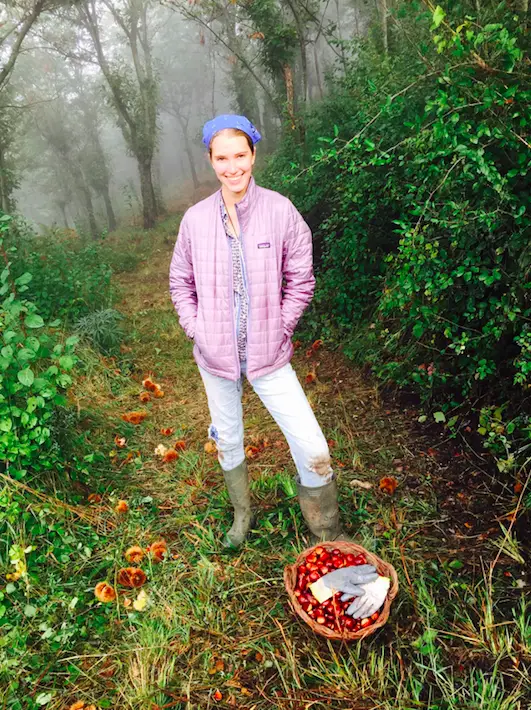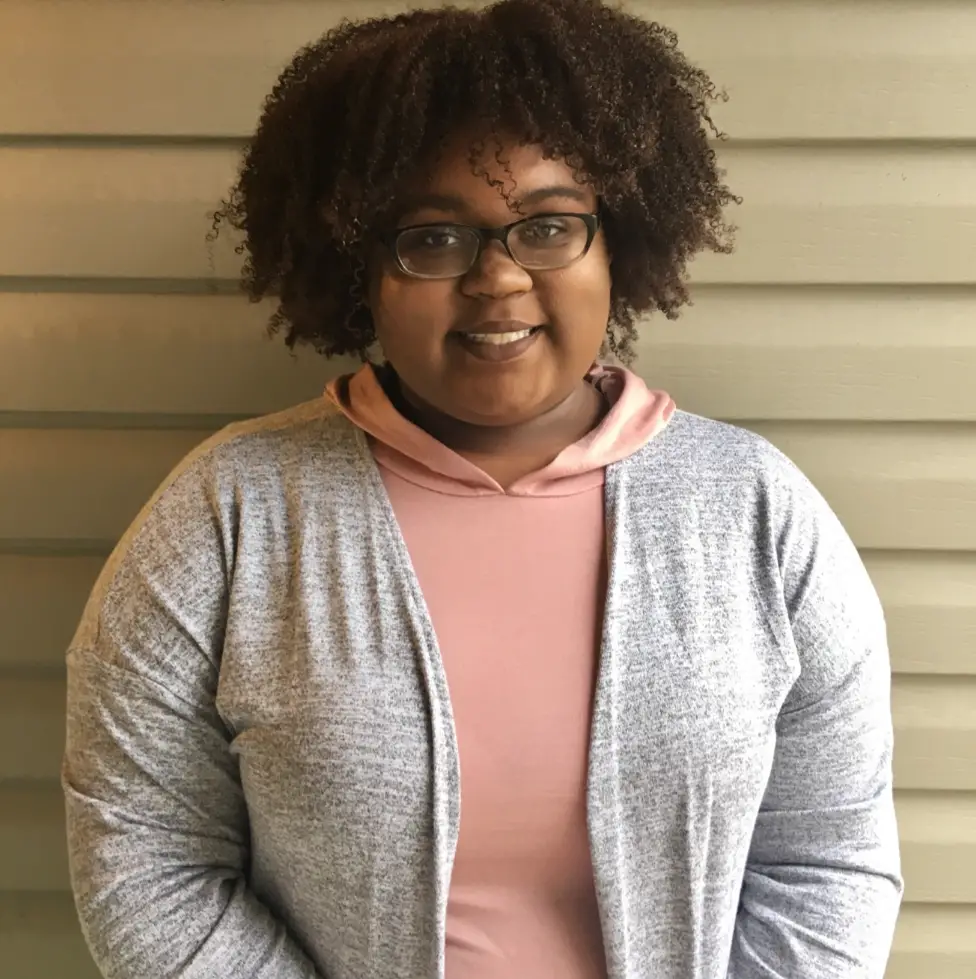Imagine having a resource that gives you the confidence and mentorship needed to travel the world. That’s the goal of No Crap Gap Guides, created by Stanford students Jiyoung Jeong and Sasha Landauer.
No Crap Gap Guides offers extensive reviews of gap year experiences and free support for potential “gappers” and their parents. Jeong and Landauer strive to give students the courage to take time off of school and experience different parts of the world. I was able to speak to Jeong and Landauer about their experiences and their hope to see a gap year movement in the United States.
Cleo-Symone Scott: What happened during your gap year?
Sasha Landauer: I spent the summer working on a farm on the California coast to save up money. I then traveled through Europe with my close friend who had also taken a gap year.
We worked on a chestnut farm in Italy, as au pairs in Paris and on maintenance in a hotel in Greece in exchange for room and board. This arrangement allowed us to save money on lodging, gain work experience and connect with locals where we traveled.
Next, I spent a month living and traveling through New Zealand with a friend who was living there. In January, I traveled independently to Nepal to teach English in a monastery in the Himalayas and trek.
In March, I joined an Antarctic leadership and environmentalism expedition with the organization 2041, which works to protect Antarctica when the international treaty that preserves it expires in the year 2041.
Finally, I backpacked and worked on farms in Argentina with another friend who was on her gap year. Over the summer, I worked on launching my first gap year website, Gap Guides, to help more students feel confident enough to take independent gap years.
Jiyoung Jeong: For the first four months, I worked at a Chinese education reform nonprofit organization and taught at a high school in Hunan Province of China. On weekends, I traveled to different parts of the country with my earned stipend.
I then lived in Seoul with my relatives for a month and learned pottery before flying back home to Boston. From there, I worked at a Buddhist temple and meditation center in Upstate New York.
After, I farmed for a couple weeks in the south of Spain, in the Sierra Nevada Mountains right outside Granada. Then, I met up with a high school friend in Madrid to backpack across Spain, France, Switzerland, Italy and Greece. For five weeks, we stayed in Athens where we worked for Khora, a refugee community center; I helped cook meals and taught English language classes.

CSS: What was your favorite experience during your gap year?
SL: I was hiking with my friend in Argentina and we got hopelessly lost. Every intersection we came to in the forest had about five trails coming together which weren’t represented on the map.
We were stuck in the rain, eating loads of blackberries and trying to find some way out of the woods. We finally found a clearing which turned out to be a farm/hotel which was a reproduction of the Shire from “Lord of the Rings.”
It was surreal — there were even hobbit holes! The owners of the property invited us in for a free lunch and we ended up staying to press apple cider that afternoon with their friends. It was such a fantastic day, although no part of it went according to plan.
JJ: Hiking to see the Matterhorn and exploring the cities of Beijing and Guangzhou by myself. In all of those cases, I got lost and I felt really scared at some points, but roaming around without a specific plan or person to follow felt incredibly liberating.

CSS: What made you want to go on a gap year?
SL: I was on the fence about taking a gap year right up until the deadline. I loved my high school experience and was really excited about starting Stanford, but I still felt that something was missing.
I knew that I was able to follow directions and pursue set goals but still felt unsure as to what I really enjoyed doing for myself. How would I spend my time if no one was watching — if the common app never found out?
I took a gap year because I realized that I might never have another 16 months to myself without any commitments or pressures whatsoever. I knew that I would attend Stanford either way, so it was just a question of whether I would first travel to some of the places I had always dreamed of. When framed in that way, the choice seemed obvious.
JJ: At the end of my senior year, I realized that I had become excellent at just “following along.” Academically, I’d done a lot to gain others’ approval, but I still had absolutely no idea what kind of person I wanted to be.
Perhaps because I didn’t know what values I wanted to prioritize in life, I often did not feel confident as a person. I felt like I should have a better sense of how I want to live before entering what could be the last years of my formal education. I decided that isolating myself from the usual social context and throwing myself into different work, cultures and communities would be the best way to do this.
CSS: In your opinion, what are the benefits of going on a gap year?
SL: Having interviewed upwards of 50 gap year students, not one has regretted taking a gap year. Most students came away with heightened confidence and perspective, whether they worked for the entire year, travelled or took time to learn a specific skill.
It is also proven that students that take gap years on average get higher grades in college and graduate faster. Especially with the insane pressure of high school and the college process, taking a gap year gives students the chance to re-energize and get a better idea of what their priorities are before jumping into college.
JJ: Because of its unstructured nature, a gap year allows you to question and, in some cases, try what you are most drawn to (or most curious about).
I think this process can prove to be absolutely invaluable and crucial because, especially in today’s fast-paced society where it’s all too easy to follow a charted school and career path, people often fall into a pattern of life without ever questioning or even looking closely at it. Perhaps having this opportunity to stray away and to identify life’s priorities is why, according to research, students who took gap years tend to be happier in their careers.

CSS: What did your gap year teach you? Do you think it helped shape who you are today?
SL: At the end of the year, I realized how little it took for me to be happy: a view of the mountains, community engagement and loved ones close by. This knowledge has allowed me to approach Stanford through the lens of intellectual engagement as opposed to prescribed routes to success.
“I knew that I would attend Stanford either way, so it was just a question of whether I would first travel to some of the places I had always dreamed of. When framed in that way, the choice seemed obvious,” – Sasha Landauer.
JJ: Absolutely. I’m not sure if other people view me as very different, but I definitely feel a lot more confident and rooted as a person. Especially by navigating new situations and environments alone, I learned to fear failure less and have consequently become much more open to trying new things, both in and out of school.
CSS: What did you struggle with during your gap year?
SL: It was initially difficult for me to feel comfortable traveling alone. I knew I didn’t want to do a set program that was expensive and meant that I would spend most of my time abroad with fellow Americans. I was lucky to find sites such as HelpX and WorkAway that facilitated free lodging in exchange for work.
JJ: Trying to figure out what I can spend a whole year doing as just a high school graduate. I also struggled with intense homesickness during the first part of my gap year. Though I was used to living away from home, doing so alone in a new country brought a whole new set of challenges, which I had a difficult time with.
CSS: What made you want to start No Crap Gap Guides and what’s your goal with the organization?
SL: It felt crazy at the end of my gap year — the most amazing year of my life — how close I was to not have taken it. If I hadn’t had the fortune to talk to a few people who had taken gap years or hadn’t heard of HelpX, chances are I wouldn’t have had the confidence to choose a gap year.
With this in mind, I wanted to do everything in my power to encourage more students to take gap years and have access to the resources I did but for free. My dream is that, through our experiences page and free mentorship, NCGG will give students the nudge to kick off their own independent journeys.
JJ: Planning an entire year out felt really daunting, and I wanted to know what others had done on their gap years. I also wanted to find a community of past gappers who could help answer my questions.
I couldn’t find any, so Sasha and I made NC Gap Guides. NCGG’s mission is to help launch a gap year movement in the United States by giving students the tools to plan a gap year and the confidence to do so.
“I felt like I should have a better sense of how I want to live before entering what could be the last years of my formal education,” – Jiyoung Jeong.
CSS: What are some of the tips you give your mentees through NC Gap Guides?
SL: We try to encourage each mentee to think deliberately about what they want to get out of the year and not be afraid to go after their dreams. Often gappers can be held back by anxieties around spending time alone or doubt over their ability to fund their years off. By pairing mentees with gappers who have been in their shoes, we try and give them the support and resources they need to thrive.
JJ: Try out things that you’re not sure you can do. I grew most from experiences that I was initially scared of trying.
CSS: Sasha, you mentioned you’re studying abroad right now, where are you? Do you have more confidence in traveling and experiencing different cultures now after having your gap year?
SL: I am currently studying abroad in Oxford. I am so grateful for the confidence and curiosity my gap year instilled in me. As an anthropology and philosophy double major, I spent last year doing fieldwork in Kenya.
I was definitely grateful for my gap year experience traveling and interacting with cultural barriers while I was on the project. After those experiences, living in Oxford feels like a breeze, and I’m able to concentrate on my academics rather than fears of being in a different country.

















